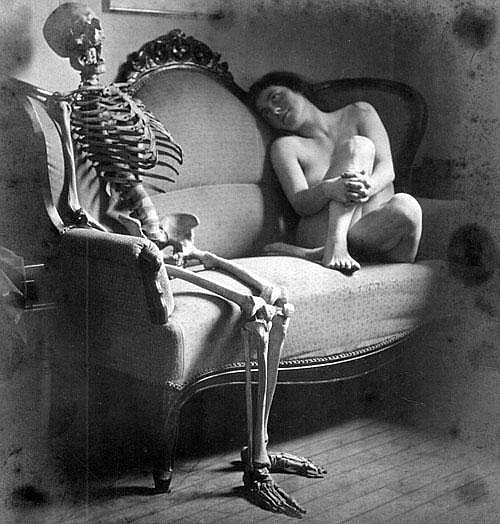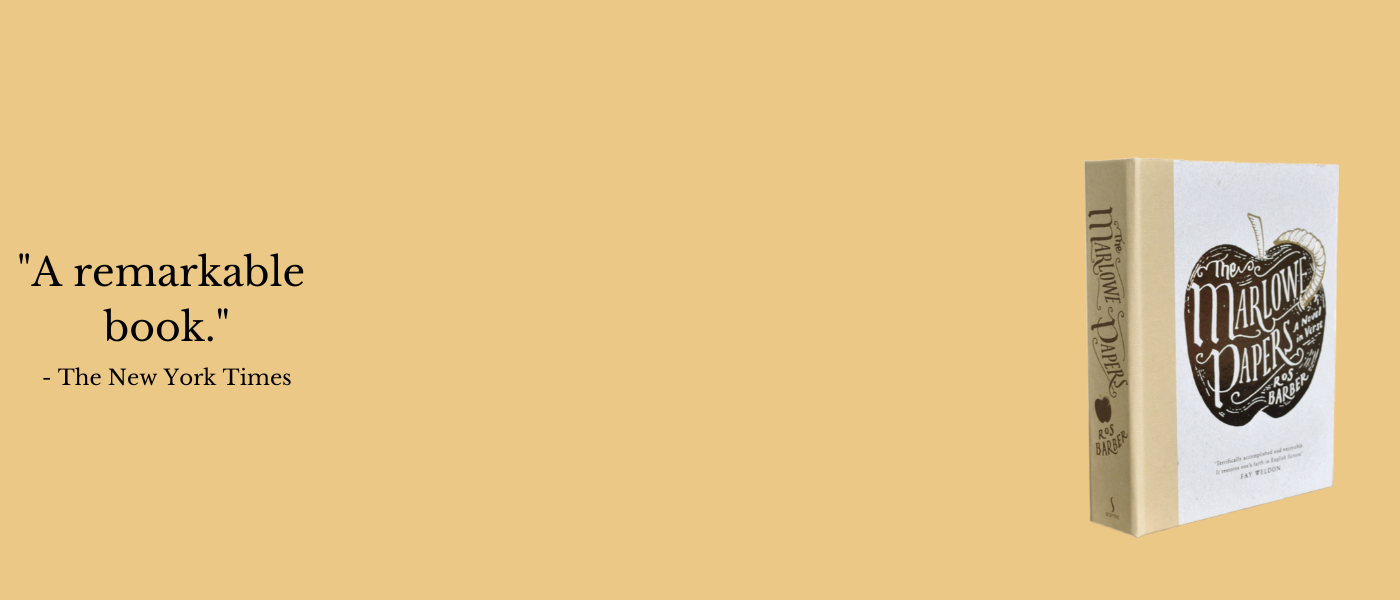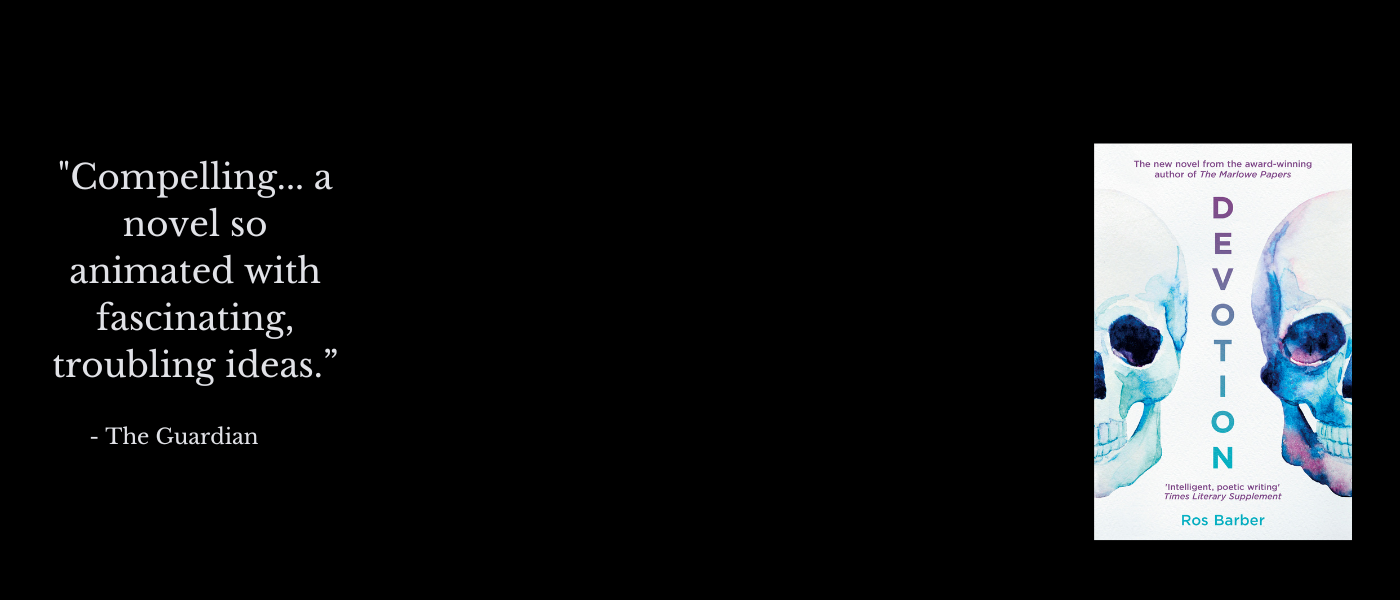
The photo? I want to draw you in against your better nature. Even though you fundamentally disagree with where I’m coming from, or can’t for the life of you understand why I’m spending my time on this rubbish. Because I appreciate most of my friends, and the visitors to this website, are orthodox in their Shakespeare leanings, and I entirely respect that, so rather than frighten you off with a more conventional ‘Who is Shakespeare?’ kind of image I thought I’d give you a rather arty naked lady.
But it’s interesting, isn’t it? The whole Shakespeare authorship controversy has been hotting up over the last month. And I’ve been keeping (relatively) quiet. Not because I’ve nothing to say on the matter, but because internet forums, blogs, online newspaper comments sections, are rarely the place to make good arguments. People feel very strongly on this matter, are often ill-informed and full of bluster, and I’d rather lay out my thinking in book form. It can’t be done in a blog post, or an online retort.
The cause of all the recent excitement was the release of Roland Emmerich’s Anonymous. The Shakespeare Birthplace Trust acted angrily to this piece of Hollywood hokum (which has not yet reached Brighton after a scaled back release, and possibly may not do so until in DVD form) by blacking out Shakespeare’s name on pub and road signs across Warwickshire, covering up his statue, taking out 1/6 page colour ads in the Daily Telegraph (spotted over someone’s shoulder on a plane) and releasing a new website where 61 people, including Stephen Fry, Prince Charles, and the two people whom others might hold responsible for the fact that I have a PhD – supposedly speak up for the traditional candidate.*
I say supposedly, because not every response actually does that, even if they don’t realise it. Anyone who believes Shakespeare of Stratford was the same man as the author William Shakespeare naturally conflates the two, so items offered as evidence supporting the Stratford man’s authorship are often only evidence that there was an author known to world as William Shakespeare… which no Shakespeare sceptic disputes. Our future king, for example, speaks about the author’s interest in royalty, and how he therefore must have met both Elizabeth and James – without pointing to any primary source evidence that the author was the man from Stratford. As you might expect (he is heir to the throne, not a professional academic) and because there isn’t any (the whole reason the Shakespeare Authorship Question exists in the first place). A piece of embargoed news will soon be added HERE…
This month also sees the release of Richard Paul Roe’s The Shakespeare Guide To Italy: Retracing the Bard’s Unknown Travels (Harper Collins), the product of twenty year’s research. The paperback’s not out in the UK until next month, but I’m already reading it on my Kindle, and it makes fascinating reading. I was aware of previous research on the Italian content of the plays, specifically Ernest Grillo’s and Roger Prior’s. But up until now, when it came to demonstrating to the lay person why sceptics claim there is ‘reasonable doubt‘ about the traditional authorship attribution, there has been nothing so comprehensive or accessible as this book. Did the person who wrote these plays have first person knowledge of the Italian cities he wrote about? The kind of knowledge one could only get through being there, rather than gleaning from tavern conversation or book? Read Roe’s book and make up your own mind.
As a result of the recent kerfuffle I’ve received a few interesting invitations, not least of which is to speak on the Shakespeare authorship question at Sussex tomorrow in a lunchtime debate organised for English PostGrads (B274, 1pm, if you qualify). I am speaking for ten minutes on ‘Why we should ask the question’. Then Dr Peter Langman will speak for the same length of time on “Why we shouldn’t”. This is where we’re at in academia right now, and I must say, I find it rather heartening. To question the authorship of Shakespeare has long been an academic taboo, and the whole thrust of my research has been to argue that it is a taboo that needs to be broken. To debate it at all is a step in the right direction.
Though a great deal is going on in my life right now, much of it is of an embargoed nature, so my communications for now will remain sporadic. But one piece of news I can share is that after four car-free years I am finally back behind the wheel of an old Ford Escort convertible. I really couldn’t be happier.
* I originally included a link to the site here. However, as of 18 Feb 2013, I gather the website is on Google’s malware URL list and twenty pages have been the source of unwanted infections… so steer clear!


I received an e-mail this morning to say that that my esteemed opponent has pulled out. He himself was a replacement for PhD student Victoria Buckley. The English department decided to have the debate and invited me to defend the authorship question, but it seems no-one wants to argue with me. Therefore, I win by default. The Shakespeare authorship question *is* a valid question and we should be allowed to research it in British universities without being dismissed as cranks, snobs or lunatics. Thank goodness for that.
Dr Victoria Buckley passed away last year.
I’d be afraid to debate you, too! Dr. Langman must have realized that he was going to be on the losing side of the argument. Do you feel empowered by the ability to strike fear in the heart of Academia?
We can’t be sure that’s the case, of course. No-one’s giving reasons. But then if there were valid reasons (such as illness) it would be strange not to give them; a basic courtesy, really, given that they wasted my time (because, naturally, I prepared). But then there appears to be very little courtesy in academia when it comes to this issue. I don’t particularly want to strike fear into anyone’s heart. I just want the authorship question taboo to be broken; for researchers who are so inclined to be permitted (without derision, mockery, and personal attack) to investigate something that many people (including myself) find rather interesting.
The English Department at Sussex University surely owes you the basic courtesy of a proper explanation of why the debate was cancelled. They invited you and you did, as you say, spend your own, un-paid time preparing for it.
The chap who invited me (a rather nice chap, as it happens) did say “I’m sorry for messing you about”. So I didn’t get an explanation, but I did get an apology.
Don’t be so modest. Dr. Langman probably saw your YouTube postings and realized he was in over his head. Seriously, if you do find out why he backed out of the debate, will you let us know?
Well you know, Dave, I try not to jump to conclusions. But if I ever find out the reasons for his withdrawal, I’ll post it here.
Thank you for your work on this, which obviously comes at great personal risk. I believe stylometry will settle the matter definitively in your favor soon.
One esteemed individual here.
Just found this, and thought that you deserved to know what happened from my end.
Having been asked to speak by Victoria who pulled out because she was on the verge of submitting her PhD (though not having been told anything about the format), I agreed because I wanted to help out a friend.
I then heard precisely nothing from Sussex Uni, or whoever the ‘nice man’ was who invited you, so mailed saying I presumed that seeing as I’d heard nothing in two weeks, it was plainly cancelled, and had accepted another engagement.
I received this mail:
Dear Pete,
I don’t think the room was available but I haven’t seen Mat since Thursday.
Thanks anyway,
So, Ros, you are not alone. It’s not the debate that’s the problem, it’s the culture at Sussex. My reply was perhaps harsh, but check out his …
Hi Paul,
Well, thanks for telling me – is there any reason you waited until now to inform a visiting scholar their services were not required?
Just wondering.
Dear Pete,
Vicky did not contact *** or myself about arranging for you to replace her as a speaker. The first we knew was last week when Vicky contacted me. Your email on Sunday was the first contact I had from you regarding speaking although I believe you have been in contact with ***. Did you receive any information to make you think the event had been cancelled prior to today’s response to your email? Has *** received a similar email regarding the treatment of ‘visiting scholars’?
Many thanks,
– I then got a bit miffed:
Dear ****,
Ignoring the fact that your first and second sentences are flatly contradictory, I would think it reasonable to expect that once the request had been made to me, and suggested to you, that you would contact me regarding arrangements, or to respectfully suggest that I was not needed. It is not incumbent upon the visitor to chase the organiser.
Yes, I did contact ***, though this was before I was made aware of who was organising the event, and I made no mention of arrangements. A moot point seeing as he didn’t reply.
I heard nothing whatsoever about the event other than that it existed.
With regards your final question, I take exception. I understand that *** is on leave, and therefore has no need to treat visiting scholars in any fashion whatsoever (and I definitely take exception to what can only be described as your ‘bunny ears’ – the implication is that you either take exception to my being described as visiting or as a scholar. As I am not employed by Sussex University, I can only assume you question my academic qualifications. But no matter). For the record, I approached *** as a friend rather than as an employee of Sussex.
Amazingly, I received no reply.
So. I won’t comment on Dave’s postings here other than to suggest that Ros was right to follow her instincts and not jump to conclusions. Oh, ok, I will. Sorry, Dave, but your comments show an astonishing lack of, well, anything. You couldn’t be more wrong, or more patronising.
I’m not convinced that you ‘win by default’, Ros, but that’s another question. Personally, I have yet to have an argument put forward that is more plausible than the one suggesting the Shakespeare was Shakespeare. If anything, it’s more likely Marlowe was the straw man. What I have noticed (and Ros is an honourable exception in this case) is that those who believe Shakespeare was Marlowe/Bacon/De Vere/the Akond of Swot are astonishingly rude and dismissive in their refusal to listen to the counter-arguments put against their proposals. When arguing against the orthodoxy, one has to be especially watertight … that’s the way it works. The arguments I’ve heard simply have not convinced, as there are always simple explanations to be found … and we know that the simplest explanations, while not necessarily the most exciting or romantic, are more often than not the right ones.
Maynard Keynes said ‘When the facts change, I change my mind. what do you do, sir?’ Something like that, anyway.
Thus far, the facts have not changed. Convince me they have, and I’ll change my mind.
Sorry to post this all so late, but I do wonder why, if you wanted to know why it didn’t happen, you didn’t just mail me! It’s not hard to find people these days …
Thank you, Pete, for clearing this up. Very illuminating!
As to the general tone of debate on the Shakespeare authorship question, there are unfortunately astonishingly rude and dismissive people on all sides of it (Stratfordians sadly no exception) but I also note a minority of reasonable and rational individuals who recognise such behaviour is counter-productive and are able to discuss these matters without rancour and personal insult. I like to think this minority is steadily growing.
Perhaps we’ll have an opportunity to talk through some of the issues in a collegial and convivial atmosphere at some point; much as I am tempted to reply to one or two of your points here, I know that a blog comment is not really the best place for such things.
As to why I didn’t seek you out and ask you what happened, the idea just never occurred. Like you, I have a lot going on most of the time, and if something doesn’t work out, I tend to just let it go and turn my energy and attention to something else instead. Everything takes time, and preparing for the debate-that-never-was had taken quite enough time already; pursuing reasons for its non-occurrence didn’t look like a fruitful activity when I had a book to finish editing and goodness knows what else.
Anyway, appreciate you dropping by and explaining, Pete. Till the next time you walk me home from some rather drink-fuelled Early Modern do, my regards to Sir Francis…
I thought you might find it amusing!
And yes, the rudeness does extend to both sides, you’re right … more than happy to have a convivial chat at some juncture, whether drunkenly down western road or otherwise … I have pretty much stepped aside from academia as no-one seems to want to give me a job (thereby hang several tales), so I may stray off-topic.
More to the point, congratulations on your book!
Thanks Pete!
I’ve been reading and webbing about the authorship question for the past 7 years. As most might find, I bounced (or drifted) from this side to that, from here to there. But within 3 years or so, I was an Oxfordian, in the sense that if I had to choose who I thought it was, I chose de Vere. But over the past year, I think the case is proved beyond a reasonable doubt. In the classic sense, Oxford would be found “guilty” of writing the plays. The evidence is overwhelming. Adonis’ bonnet. Romano’s sculpture. Descriptions of paintings, descriptions of distance from Portia’s estate, “Belmont,” to Venice, being captured by pirates, de Vere’s itinerary through Italy a virtual guide to Shakespeare’s Italian plays. Any of these coincidences could be just that, or have been related by some means to the “real” Shakespeare. But these, and more not mentioned, are, as a group, a smoking gun. De Vere’s early writings fit. His personality fits. His dishonor fits. It’s a truth that Edward De Vere was William Shakespeare.
Thanks, Richard. I can’t agree with you, afraid, since I can see other perspectives too, and see that our perceptions are strongly shaped by our beliefs. I don’t yet see grounds for this level of certainty.